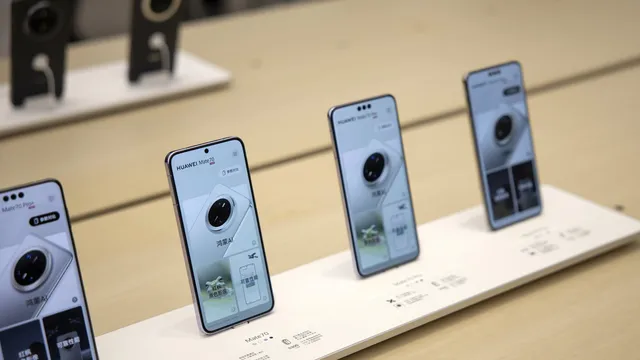Children should not have access to smartphones until they reach the age of 13, according to a new global study.
Those who used smartphones before the age of 13 are more likely to have suicidal thoughts, poor emotional regulation, lower self-esteem, aggression, and detachment from reality, according to the study published in the Journal of Human Development and Capabilities.
Girls are more affected by smartphone use than boys, with 9.5% of girls surveyed considering themselves to be "struggling" with their mental health compared to 7% of boys, regardless of their country of origin, the study adds.
Children under the age of 13 are more likely to suffer from sleep disorders, cyberbullying, and negative family relationships, the study found.
The study is based on data from self-assessed mental health profiles of 100,000 young people between the ages of 18 and 24.
The study was conducted by a team from the research non-profit organization Sapien Labs.
The researchers calculated an overall "mental health" score for each profile based on 47 social, emotional, cognitive, and physical functions.
Mental health outcomes deteriorate the longer a child has access to a smartphone.
For example, the score of a child who received a phone at age 13 dropped from 30 to just 1 compared to children who received a phone at age 5.
The results are worse for 18-20-year-olds compared to 21-24-year-olds in the responses, which may be due to prolonged screen exposure during the COVID-19 pandemic, the study said.
The results of smartphone use in children under 13 are the same, despite geographical and social differences between children.
Lead author Tara Tiagarajan said she would like to see smartphones restricted for those under 13 and regulated by government authorities in the same way as alcohol and tobacco. This measure should be combined with restrictions on social media platforms, as well as "mandatory digital literacy training and corporate responsibility enforcement."
"I was initially surprised by how bad the results were. However, when we think about it carefully, it becomes clear that younger, developing minds are more vulnerable to the online environment, given their vulnerability and lack of life experience," Tiagarajan said.
Most bans on mobile phones to date have been in European schools, with partial bans in French, Dutch, British, Italian, Hungarian, Spanish, Irish, Swedish, Belgian, Greek, Latvian, Luxembourgish, and Finnish classrooms.
Some of these countries, including France, the Netherlands, Italy, Luxembourg, and some Spanish regions, have a complete ban on mobile phones in schools, so they cannot be used in any way during the day.
Other European countries, such as Denmark, Cyprus, Bulgaria, and Portugal, are also considering further restrictions on mobile phones.
With regard to social media, the French Minister for Artificial Intelligence (AI) has also proposed a European ban on the use of social media for persons under the age of 15.
Several EU laws, such as the Digital Services Act, the Audiovisual Media Services Directive, and the General Data Protection Regulation, include provisions to protect children from harmful content and protect their data. | BGNES

 Breaking news
Breaking news
 Europe
Europe
 Bulgaria
Bulgaria







